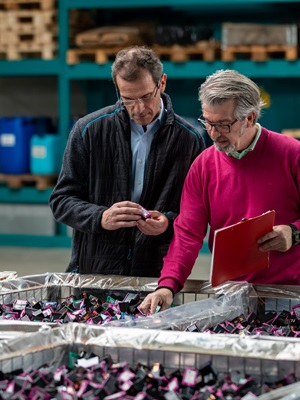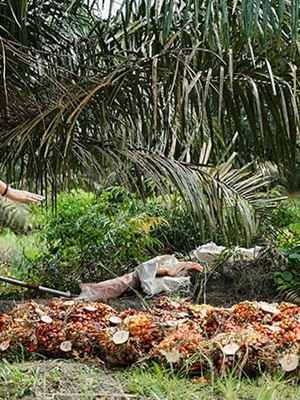Climate change is very real, and its effects can be felt across the world. Heat waves, wildfires, deforestation, water shortages, biodiversity loss—the list goes on and on.
With millions of people already displaced by climate change, it’s not a secret that this pressing environmental issue will continue to have devastating effects if people don’t change their ways. As climate change significantly impacts local labour markets and global supply chains, a crucial realisation emerges– there’s a green skills gap waiting to be filled.
This article aims to explore the importance of investing in green skills development to drive the transition to a more sustainable economy and the opportunities presented by green skills development.
The Need for Green Skills
Global labour markets have been under immense pressure lately. First, there was the Great Resignation, where millions of workers left their jobs in 2021 for a variety of reasons, including job insecurity, toxic company culture and their company’s poor response to COVID-19.
Following this is the Great Reshuffle, where employees start looking for more fulfilling roles with purpose. Amid these labour market disruptions and the need for climate change action, both employees and employers are realising one thing– there’s an existing green skills imbalance due to the significant shifts in the world of work. More importantly, in order to transition to a green economy, it’s essential to identify, evaluate and develop the necessary green skills.
Failing to do so may result in the loss of an estimated 71 million jobs globally as the economy transitions to a circular economy. On the other hand, investing in reskilling and implementing smart policies could produce more jobs, with the energy sector alone generating a net growth of 18 million jobs.
As consumers, investors and workers increasingly hold organisations accountable and shift their preferences towards more sustainable choices, it’s clear that businesses need to implement environmentally responsible practices to become future-proof. While making changes such as eliminating fossil fuels will hit some industries harder, it’s also important to note that over 1.47 billion jobs across the world depend on a stable climate.
With industries undergoing constant innovation to become more sustainable, it’s safe to say that there are jobs that are yet to be invented. Thus, the potential demand for green skills cannot be underestimated.
Strategies in Shifting to a Green Skills Economy
The challenges in shifting to a green skills economy and building a sustainable future are not easy to overcome. However, when addressed effectively, governments, businesses and employees can enjoy various opportunities.
There are various strategies in driving the shift to a green skills economy, including implementing smart green policies that build a future-proof workforce and inclusive, functional labour markets. Playing a crucial role in policymaking, governments must consider that industry changes will occur at different times and in different places.
While job losses may occur instantly, jobs will be created at a more gradual pace, which is why it’s essential to put strategies in place to protect workers rather than jobs and promote labour market flexibility. Furthermore, by considering the workforce as a valuable asset, spending on green skills development should be regarded as an investment rather than an added cost.
Meanwhile, employers must be proactive in mapping green skills requirements to get started with reskilling and reemploying as soon as possible.Through apprenticeships, vocational education and other trainings, employers can build their own talent pool and establish diverse entry points into their company. Furthermore, they can leverage green skills development and sustainable employment as their brand advantage and attract the right talent. By putting individuals as the centre of the transition, companies can tap into workforce expertise for future success.
Similarly, individual employees must be proactive enough to take ownership in upskilling and actively seeking opportunities for learning and growth. They must keep in mind that to ensure employability and career success, embracing lifelong learning and career flexibility is a must.
Green Skills Development as a Prerequisite to Achieving a Sustainable Future
Investing in green skills development and the transition towards a greener, more sustainable future are interconnected. They are intrinsically linked and shape each other in many ways.
The transition towards a green economy can significantly impact the labour market and bring about significant changes in the demand for skills. On the other hand, without closing the gap in green skills, it becomes increasingly difficult to achieve progress in the transition towards a greener future.
Furthermore, to ensure a just and inclusive transformation, all stakeholders, including governments, businesses and employees must work together on a new social contract that prioritises the development of green skills, supports employees through the transition and builds sustainable economic growth. It is only through collective effort and shared vision will it be possible to ensure that everyone moves forward together and that nobody gets left behind.
Posted 02/08/2024

















